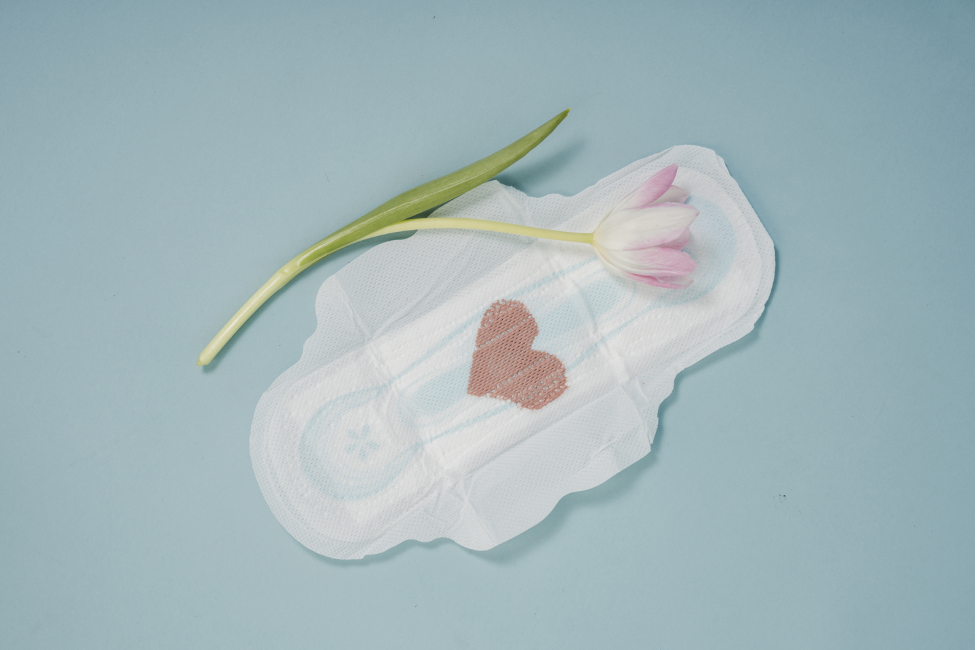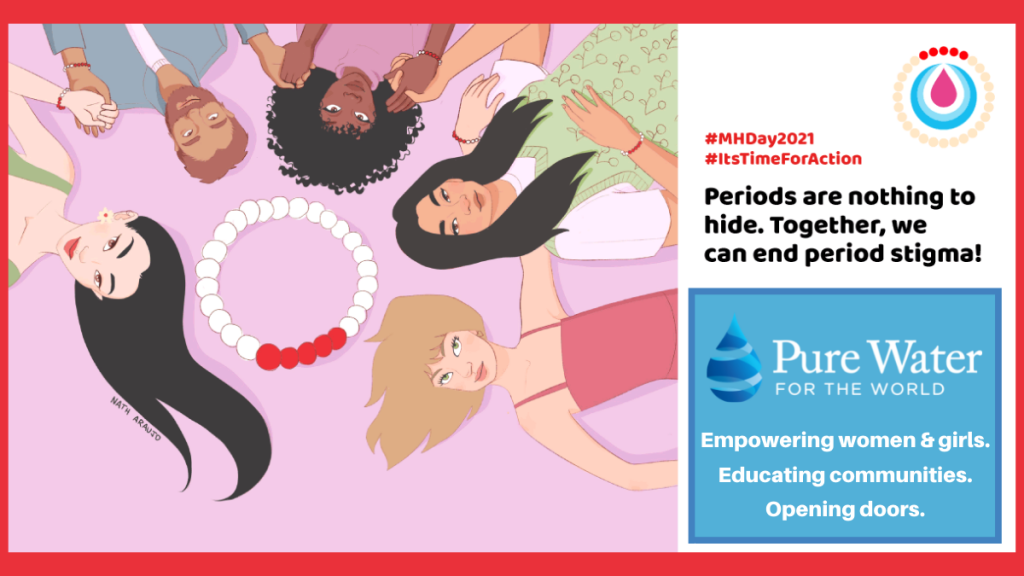The Importance of Safe Water and Proper Sanitation on Menstrual Hygiene
Written for Pure Water for the World by Julia Green.

Safe water is essential in maintaining health; it’s a universal fact. While it’s needed for sanitation and hygiene, not everyone has access to safe water. Women and girls – particularly those in lower-income nations – face barriers in accessing safe water. 71% of studies featured in a scholarly journal reported a negative health outcome for these women. Because of a lack of access to safe water, they do not have basic sanitation. This is compounded with the inaccessibility of menstrual hygiene management (MHM) resources. MHM is defined as using a clean menstrual management material to absorb or collect menstrual blood, that can be changed in privacy as often as necessary for the duration of a menstrual period, using soap and water for washing the body as required, and having access to safe and convenient facilities to dispose of used menstrual management materials.
Safe water for women everywhere
One thing that prevents women from having a better quality of life is the taboo around menstruation. It causes unnecessary shame for millions of women and bars conversations about menstrual hygiene and management. The lack of access to safe water and MHM tools heightens the risk for these women to develop infections, and it’s associated with harassment and psychosocial effects. In vulnerable communities of developing countries, women face this challenge both within their households and public settings, including schools and healthcare facilities.
There’s a considerable lack of basic infrastructure, privacy, and guidance to achieve MHM in most of these settings. Safe water is of paramount importance today because of the pandemic. More value is placed on cleanliness and hygiene to help keep immunity up. This also makes water a more precious commodity. The grave lack of access to safe water, private facilities, and appropriate sanitary products may push menstruating girls out of school temporarily — and sometimes permanently in several countries in Asia and Africa. They’re kept home because of unfounded feelings of shame and guilt over menstruating, and many choose to take girls out of school when they start. Even in the U.S., most school-aged girls have negative perceptions and embarrassment over their periods. Four in five students have either missed class or know someone who missed class because they didn’t have access to MHM products. This unfortunate phenomenon called “period poverty” stretches even into adulthood. More than one in five American women said that they could not afford to buy both food and menstrual management materials. Some of them opted to use cloth, rags, toilet paper, or even paper towels from public bathrooms. Most of them do not have access to safe water.
When safe water and MHM resources are out of reach for women, it results in poor menstrual health which, in turn, causes infections in the reproductive and urinary tracts. It can also lead to irritation of the skin and dermatitis (swelling and blisters on the skin).
Menstrual hygiene through the lens of health and human rights
MHM isn’t a luxury. It should be considered a health concern and a basic human right. As such, public health professionals should spearhead menstrual health education and awareness. These specialists should be able to analyze the factors that contribute to the health of a community and its members, including access to education, socioeconomic standing, and other community-specific risk factors. Today, public health nursing is one of the top nursing careers and rightly so. Nurses certified in public health have to go through registered nursing programs first, equipping them with primary care skills. As they advance their practice in public health, they’re able to educate not just women, but also the community at large, about the real-world implications of hygiene on health. Society needs to be informed about how menstruation is a normal physiological function. Healthcare professionals like public health nurses play an important role in helping remove the stigma and further the strategies for better access to safe water and MHM resources.
Furthermore, the water and sanitation needs of women are very much part of their basic human rights. In many places, there’s a persisting view that sees menstruation as shameful, impure, and unclean. For women and girls to enjoy their full rights, steps must be taken to safeguard their access to safe water and sanitation. To do this, legislative bodies should focus on normative content that promotes availability, accessibility, and affordability of safe water and menstrual management materials. These efforts should go hand-in-hand with ensuring safety, privacy, and dignity for women.
There’s still quite a long way to go, but every step and drop of safe water can get us to where we need to be.
Exclusively written for purewaterfortheworld.org by Julia Green
Menstrual Hygiene Day (#MHDAY2021) is May 28th. This year’s theme is #ItsTimeForAction. Take action. Empower girls and open doors to their future. Donate Today.

